
Prevent and repel waste, contribute to the effective management and use of the country's resources.
The Decision clearly states that the common goal is to prevent and repel waste, contribute to the effective management and use of the country's resources, mobilize the people's strength, bring the country into a new era, an era of growth, an era of development, wealth and prosperity; maintain political stability and socio-economic development.
The specific goal is to overcome limitations and shortcomings in policies and laws; strengthen law enforcement in socio-economic fields, especially those areas prone to waste.
Building a streamlined, effective and efficient state apparatus; building a contingent of officials, especially leaders at all levels, with sufficient qualities, capacity and prestige to match the tasks in the new conditions; cutting down on administrative procedures and compliance costs for people and businesses; the goal is that by 2030, Vietnam will be among the top 50 countries in the world and ranked 3rd in ASEAN in terms of e-government and digital economy.
Strengthen preventive measures; step up monitoring, inspection, examination, detection, and strong, deterrent handling of wasteful behavior. Thoroughly handle issues and incidents that cause great waste and public outrage, creating a strong spreading effect .
8 groups of tasks and solutions
To achieve the set goals, the Plan clearly states 8 groups of tasks and solutions for implementation, including: 1. Perfecting policies and laws in the fields of socio-economic management and waste prevention and control; 2. Focusing on building, streamlining the apparatus and building a team of effective and efficient cadres and civil servants; 3. Managing and using resources, human resources, material resources, and financial resources effectively, enhancing sustainability; improving energy efficiency; 4. Promoting administrative reform, focusing on minimizing administrative procedures and compliance costs for people and businesses; 5. Focusing on resolving long-standing problems of important national projects, key projects, low-efficiency projects, backlogs, and prolonged projects causing great loss and waste; weak commercial banks; 6. Strengthening inspection, supervision, audit, investigation, and handling of waste cases; 7. Raise awareness, promote the role and responsibility of the Fatherland Front, mass organizations and the People in preventing and combating waste; 8. Strengthen the capacity of cadres and civil servants to carry out waste prevention and combat work.
Accordingly, focusing on building, streamlining the apparatus and building an effective and efficient team of cadres and civil servants: Strictly implement the Resolutions and Conclusions of the Politburo, the Secretariat, the Resolutions of the National Assembly, the National Assembly Standing Committee on reforming the organization of the state administrative apparatus to be streamlined, effective and efficient, focusing on reviewing, arranging, perfecting, and streamlining the internal focal points of state administrative agencies and public service units. Cut down unnecessary intermediate focal points, arrange the organization in a multi-sectoral and multi-disciplinary direction according to the principle that one agency performs many tasks, one task is assigned to only one agency to preside over and take primary responsibility; thoroughly overcome the overlapping of functions and tasks, and division of areas and fields. Review and re-evaluate the assignment and management of payroll.
Regarding the management and use of the state budget and public debt management: Strictly control the state budget deficit, keep the state budget deficit and public debt within the permitted limits according to the Resolution of the National Assembly, ensure national financial security and safety, and improve the efficiency of loan use. Mobilize and use ODA loans and preferential loans from foreign donors to ensure socio-economic efficiency and debt repayment capacity; deploy debt management tools according to regulations in accordance with practical requirements, associated with state budget management, state treasury management, ensuring the efficiency, safety and liquidity of the state budget. Arrange for timely, complete and punctual payment of principal and interest of the state budget. Organize capital mobilization for the state budget through the issuance of government bonds to ensure compliance with the needs of the central budget and the market's ability to respond. State treasury management ensures safety, efficiency, and compliance with monetary policy.
Regarding promoting administrative reform, focusing on minimizing administrative procedures and compliance costs for people and businesses: Promoting the application of information technology, building a digital platform to connect and share data between agencies and organizations. Building and effectively operating the e-Government and digital Government systems; enhancing the application of science, technology and engineering in state administration and socio-economic management in a public, transparent, friendly, accessible and easy-to-implement manner, creating favorable conditions for businesses and people, contributing to improving management efficiency, reducing time and compliance costs for people and businesses...
Regarding strengthening the work of inspection, supervision, audit, investigation, and handling of waste cases: Strengthen and improve the quality of inspection, supervision, audit, and investigation of the implementation of the Party's guidelines, policies, and laws of the State on practicing thrift and combating waste, focusing on areas prone to waste, where there are many petitions, letters, complaints, and denunciations, and where public opinion is concerned and concerned.
At the same time, proactively apply preventive measures; review, promptly detect, prevent, and strictly handle organizations and individuals who violate, cause loss and waste of resources according to the provisions of law; strictly implement conclusions and recommendations of competent agencies, thoroughly recover state money and assets; promptly overcome limitations and inadequacies in management mechanisms, policies, and laws discovered through inspection, examination, and audit work.
The strategy is implemented in two phases.
The national strategy on waste prevention and control to 2035 is implemented in two phases.
Phase 1 (from 2025 to 2030): During this phase, tasks and solutions will be synchronously implemented, focusing on researching, reviewing, amending, and supplementing to overcome shortcomings of the legal system to propose specific tasks in the law and ordinance-making program of the 15th and 16th National Assembly; focusing on improving capacity and effectiveness in preventing, detecting, and handling wasteful acts.
Phase 2 (from 2031 to 2035): Promote the results achieved in the first phase. Based on the preliminary summary, based on the requirements of waste prevention and control work and the practical situation, develop a specific Plan to implement the Strategy for the period 2031 - 2035 and promote the comprehensive implementation of groups of tasks and solutions to complete the objectives of the Strategy. Summarize the implementation of the Strategy in 2036.
Lan Phuong
Source: https://baochinhphu.vn/chien-luoc-quoc-gia-ve-phong-chong-lang-phi-den-nam-2035-102250422210206234.htm


![[Photo] Prime Minister Pham Minh Chinh meets with the Policy Advisory Council on Private Economic Development](https://vphoto.vietnam.vn/thumb/1200x675/vietnam/resource/IMAGE/2025/5/8/387da60b85cc489ab2aed8442fc3b14a)


![[Photo] National Assembly Chairman Tran Thanh Man chairs the meeting of the Subcommittee on Documents of the First National Assembly Party Congress](https://vphoto.vietnam.vn/thumb/1200x675/vietnam/resource/IMAGE/2025/5/8/72b19a73d94a4affab411fd8c87f4f8d)

![[Photo] General Secretary To Lam begins official visit to Russia and attends the 80th Anniversary of Victory over Fascism](https://vphoto.vietnam.vn/thumb/1200x675/vietnam/resource/IMAGE/2025/5/8/5d2566d7f67d4a1e9b88bc677831ec9d)




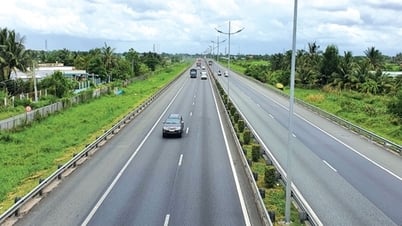









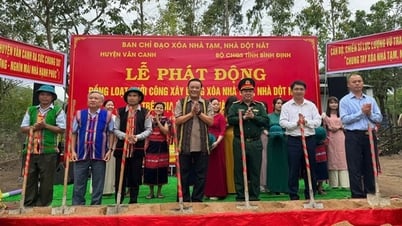
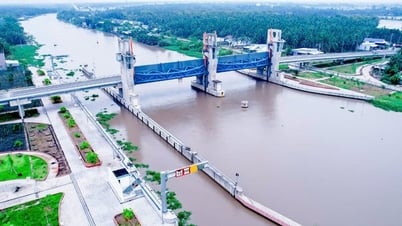
![[Photo] President Luong Cuong presents the decision to appoint Deputy Head of the Office of the President](https://vphoto.vietnam.vn/thumb/1200x675/vietnam/resource/IMAGE/2025/5/8/501f8ee192f3476ab9f7579c57b423ad)































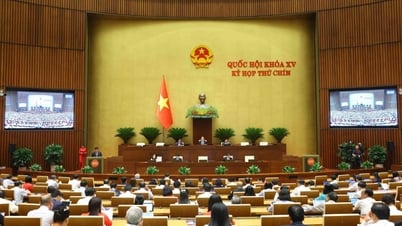


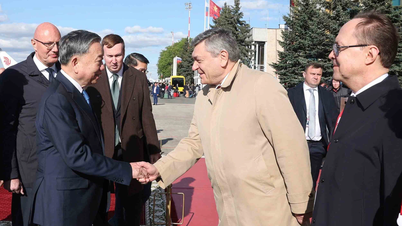












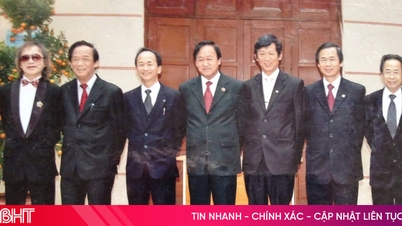








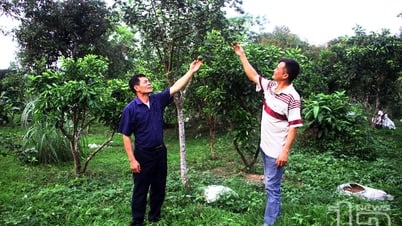













Comment (0)